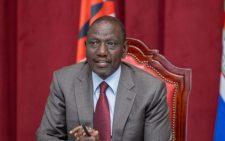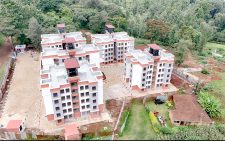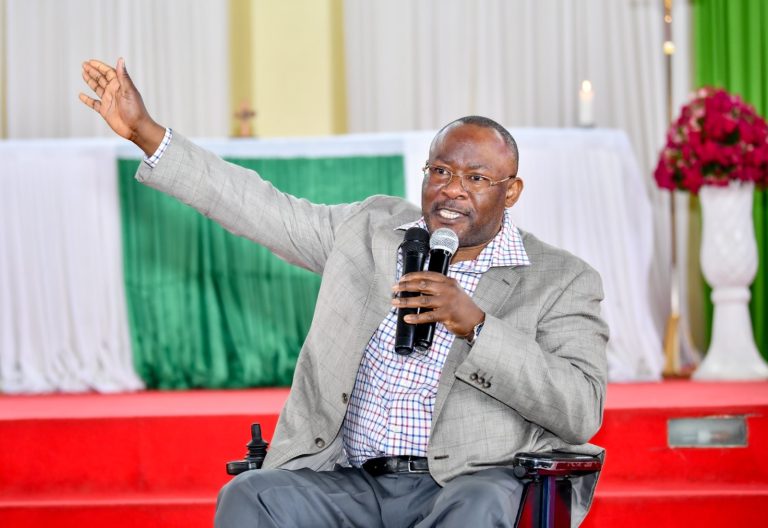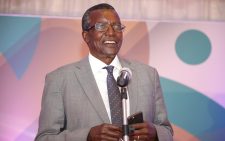Alai: Orengo’s survival as Siaya governor hinged on Ruto alliance
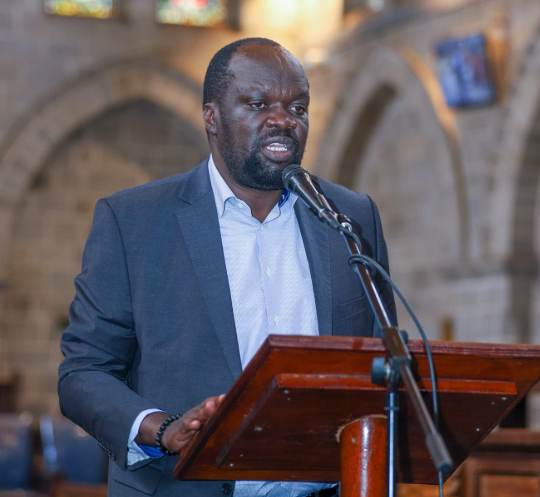
Kileleshwa Member of the County Assembly (MCA) Robert Alai has stirred conversations about political realignment and the balance of power concerning Siaya County Governor James Orengo.
Alai, in a local TV station on June 5, 2025, claimed that Orengo’s continued leadership was hinged upon his alignment with President William Ruto.
“Tungeondoa James Orengo kama gavana iwapo hangeenda kwa Ruto,” Alai said, suggesting that Orengo’s tenure was tied to his cooperation with the national administration.
This comes amid Orengo’s recent visit to State House on June 5, 2025, where he led a delegation to seek development support for Siaya County, marking a significant shift from his earlier stance of not bowing to President William Ruto.
His meeting with the president and senior officials highlighted a pragmatic approach to governance, reflecting the reality that regional leaders often engage with national leadership to secure crucial resources and advance development goals.
Orengo’s delegation focused on collaborative strategies to boost Siaya’s socio-economic growth, illustrating how practical governance considerations sometimes require bridging political divides.
However, Alai’s comments have triggered speculation about whether Orengo’s pragmatic approach to engaging with President Ruto is a sign of shifting political alliances.

The remarks come in the wake of the 2022 presidential elections, which saw President Ruto emerge victorious amid a charged political climate. The elections reshaped national political dynamics, prompting local leaders to reconsider their positions to ensure effective service delivery.
The handshake between former President Uhuru Kenyatta and ODM leader Raila Odinga also played a role in altering the political landscape, encouraging leaders to work across party lines for the sake of development.
Orengo, addressing these concerns, recently emphasised the need for collaboration among leaders. “We must work together for the benefit of our people, regardless of our political affiliations,” he stated.
While this message has been interpreted by some as a practical move to foster unity and development, others see it as an indication that Orengo is softening his stance towards the current administration.
Alai’s remarks highlight ongoing discussions within the Orange Democratic Movement (ODM), where loyalty to party ideals remains a strong point of debate. Some ODM loyalists have expressed discomfort with any perceived closeness to the ruling United Democratic Alliance (UDA). Nonetheless, there is a recognition that aligning with the national government can unlock crucial resources for counties.
Critics of Alai’s statement argue that his comments underscore a broader trend in Kenyan politics, where leaders prioritise political alliances with the presidency to secure support for their counties.
This dynamic raises important questions about the autonomy of county governments and the impact of national politics on local decision-making.
As these discussions unfold, the debate surrounding Orengo’s political moves and possible alliances is expected to persist.
The situation illustrates the delicate balancing act that local leaders must perform to address both the needs of their constituents and the evolving national political landscape. Ultimately, it highlights the importance of cooperation and dialogue in ensuring that development goals are met and communities continue to thrive.
